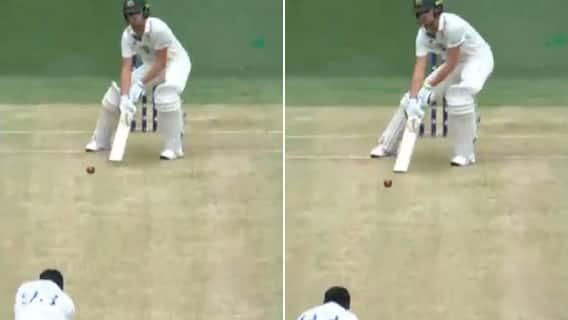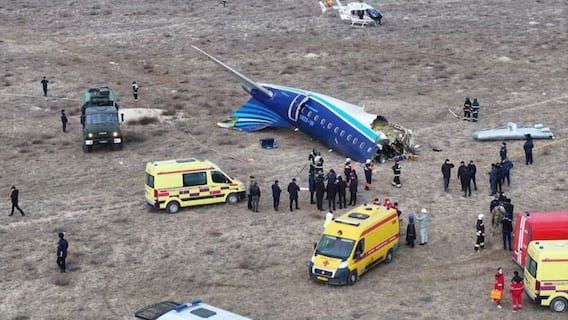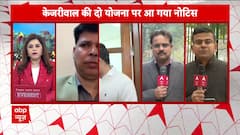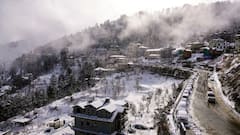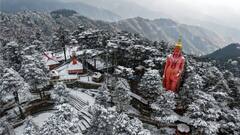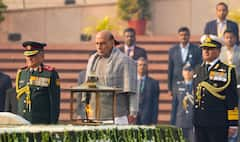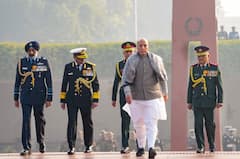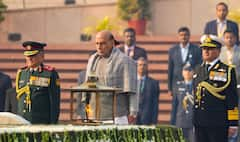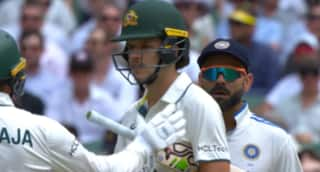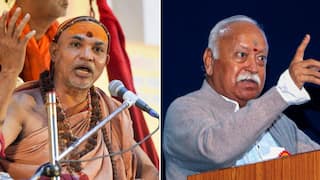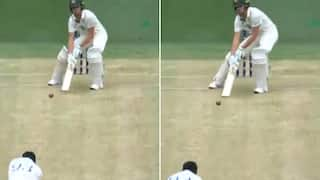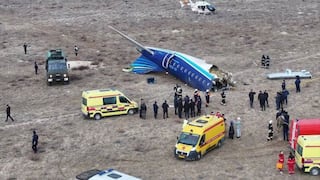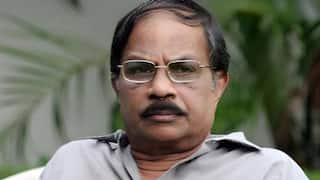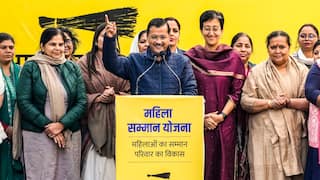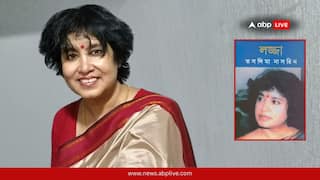HG Wells Birth Anniversary: When The Sci Fi Writer Met Tagore And Talked Music, Civilisation, Education
HG Wells and Rabindranath Tagore met in Geneva in June 1930, and had a long conversation on the evolution of civilisation

New Delhi: Author, polymath, historian, prophet — Herbert George Wells was all of these and much more. The prolific writer, known mostly for his science fiction and comic realism, left a range of technological predictions in his works. The atomic bomb (The World Set Free, 1914) has since become a reality, unfortunately, and humanity surely hopes his time machine (The Time Machine, 1895) will materialise one day.
Born on September 21, 1866, in Bromley, England, HG Wells saw his family struggle financially as he grew up. His experiences may have shaped his socialist views, and his passionate concern for human beings and society showed through his writings that talked about an ideal, peaceful world with no division between the classes.
Wells, who believed there should be one uniform human civilisation, once met Indian polymath and thinker Rabindranath Tagore and had a long conversation on the evolution of civilisation.
The meeting took place in June 1930 when the Indian poet was visiting Geneva, and their conversation was documented in A Tagore Reader, edited by Amiya Chakravarty.
While Tagore believed the modern civilisation was trying to make the world uniform, with cities in the East “wearing big masks” that represented “no country in particular”, Wells was of the view that this was an indication that the world was reaching out for a new human order that refused to be localised.
“Let the mind be universal”, Tagore said, but added that there was no need for the individual to be “sacrificed”. Wells replied: “We are gradually thinking now of one human civilization on the foundation of which individualities will have great chance of fulfillment.”
He was firm in his opinion that the individual has suffered because civilisation split up into separate units and did not merge into a “universal whole”. Tagore and Wells also talked about “a tendency to have one common language for humanity”, and seemed to agree that a common language could be forced upon people “whether we like it or not”.
ALSO READ | 10 Rabindranath Tagore Quotes That Immortalise The Polymath
‘Music Is The Most International Thing’
The conversation veered towards music as Wells told Tagore how wonderful it would have been if the Bengali bard’s poems could be understood by all people at the same time, without losing much of their essence in translation.
Tagore replied that music of different countries has a common psychological foundation, and so is the case for literature, though he agreed that a "national music" should exist.
Wells then said how modern music is flowing freely without losing anything — “from Purcell to Bach, then Brahms, then Russian music, then oriental”.
“Music of all things in the world is most international,” he said.
Wells told Tagore the West would get used to his music, after the latter rued that his over 300 pieces of music were not intelligible to the people of the West because they could not be written down in European notation.
While Tagore was sceptical about West’s appreciation of the tunes and melodies that move Indians, Wells was all optimistic that artistic expression in future could be “quite different from what it is today”.
He talked about radio, which was then bringing the world together, and predicted “further invention” and “new discoveries in science” that were “yet undreamed of”.
This was definitely another of Wells’s prophecies that has come true as the current digital age has smashed many boundaries between the East and the West and other divides.
The lively debate saw the two also talk about the state of education, as Tagore expressed despair over the system of education introduced by the British in India, and Wells said “the English were not better off”.
“My country, like every other, will evolve its own constitution; it will pass through its experimental phase and settle down into something quite different from what you or I expect,” Tagore concluded.
Wells and Tagore were contemporaries born five years apart in two different parts of the world. But both influenced each other with their writings and thoughts. Wells mentioned "devotional poetry of Rabindranath Tagore" in his 'God The Invisible King'.
Five years after the Indian polymath, then 80 years old, breathed his last in 1941, Wells died in London in 1946, at the age of 80.
Trending News
Top Headlines







